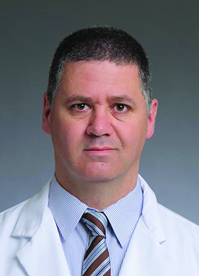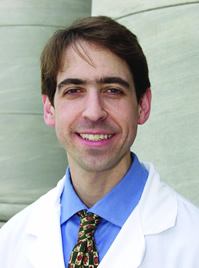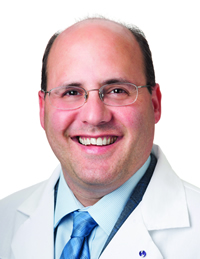A wide range of research continues into some of the basic mechanisms underlying hard-to-manage arthritis and how understanding those mechanisms might help predict responses to therapy and to develop new options for treatment.
Several experts conducting some of this work will discuss the cutting edge of inflammatory arthritis research during the Rheumatology Research Foundation special session Innovative Research in Inflammatory Arthritis from 7:30 – 8:30 am Wednesday.

In one talk, Adam Mor, MD, PhD, Assistant Professor of Medicine and Pathology at New York University School of Medicine, will discuss the role of T cells in rheumatoid arthritis. T cells from RA patients, he said, do not function well in terms of adhesion. His work has shown that the programmed cell death protein 1 (PD-1) receptor regulates T cell adhesion and clearly plays a role in how RA T cells function.
“I will present new data about the biology of this receptor, its signaling, and function,” Dr. Mor said. “This is important, because feeding the cells with the ligand of the receptor could be a good treatment for RA.”
Peter A. Nigrovic, MD, Associate Professor at Harvard Medical School in Boston and director of the Center for Adults with Pediatric Rheumatic Illness, will discuss another potential contributing mechanism to inflammatory arthritis. “Glycosylation of the Fc (fragment crystallizable) portion of IgG (immunoglobulin-G) affects the effector capacity of antibodies, rendering them more or less potent at triggering inflammation,” he said. “We investigated the hypothesis that changes in IgG glycosylation could contribute to inflammation in juvenile idiopathic arthritis.”

Dr. Nigrovic said that IgG glycans shift to a “rather remarkable extent” during normal childhood. Those changes may render antibodies potentially more pro-inflammatory in the context of arthritis.
“These studies of normal glycan variation have now enabled us to define the first in vivo modulator of human IgG Fc glycoscylation,” he said.
Another approach to understanding pathogenesis of inflammatory arthritis lies in the use of some of the newest genomic techniques. Harris R. Perlman, PhD, Professor of Medicine and Chief of Rheumatology at the Northwestern University Feinberg School of Medicine, will speak about his work on developing gene expression signatures of monocytes and synovial macrophages in RA.
Cells generally known as non-classical monocytes, Dr. Perlman said, are extremely important for the induction of RA-like disease in mice. If the cells are eliminated in a mouse model, RA cannot develop.

Those monocytes enter joints and differentiate into macrophages. Dr. Perlman’s group has shown that the macrophages themselves are also heterogeneous, forming multiple populations. In RA, macrophages that are derived from birth are overwhelmed by the monocytes that enter the joint. Understanding the differences between the macrophages could open up avenues into improved treatments, and doing so requires advanced genomic techniques.
“The end goal is to develop transcriptional profiles of the macrophage population,” Dr. Perlman said. Using a mouse model and then verifying it with human data from ultrasound-guided synovial biopsies, those profiles could offer up genomic signatures for a response to therapy. It is possible to determine if certain pathways are being activated inside the cell—for example, the TNF-alpha signaling pathway, or the IL-6 signaling pathway.
From this, Dr. Perlman said, new therapeutics and forms of pathogenesis not previously considered can be identified, and response to therapy could be indicated.
“It’s a multipronged approach, and it’s extremely powerful — a couple of years ago we could never have thought this, and now we can,” he said.
This precision medicine-based approach has already borne fruit in other fields such as oncology, but Dr. Perlman said it is only beginning to impact the rheumatology arena.
“This is paradigm shifting, it could change how we treat patients,” he said. “That’s what we’re doing this for, to have that type of impact.”
Innovative Research in Inflammatory Arthritis: A Rheumatology Research Foundation Special Session
7:30 – 8:30 am Wednesday • Room 146A
